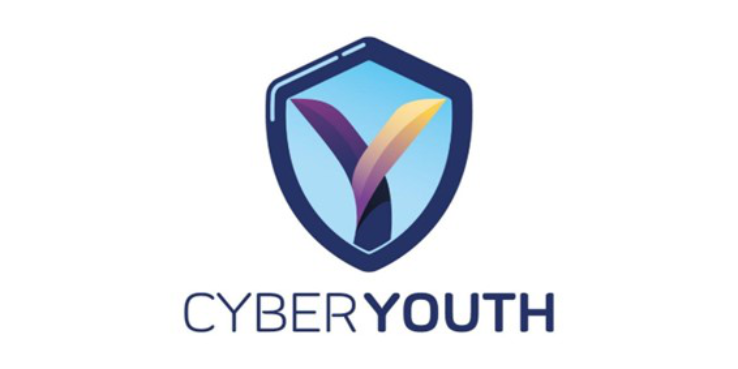Non-formal education platform for cyber-security training & resilience of youth organisations and young people
BACKGROUND OF THE PROJECT:
CYBERYOUTH is a 2-years Erasmus+ Cooperation Partnership in the field of Youth with main focus in online safety and cybersecurity. In an increasingly online world, cybersecurity has never been more important. Given this importance, cybersecurity is at the forefront of the European Union’s efforts to build a resilient, green and digital Europe. Building on the European Union’s ambitious cybersecurity strategy implemented in December 2020, CYBERYOUTH looks to develop a strategy to further aim at youth organisations and young people, a demographic that research has proven would highly benefit from further education in cybersecurity skills. Leading cyber-security firms explain that 3 out of 4 SMEs cannot find enough young people with cyber-security skills, and a further effort must be taken to engage and develop young people for these highly coveted positions in the labour market.
Therefore in this scenario and, through collaborative efforts with cybersecurity SMEs and youth organisations, the project CYBERYOUTH: “Non-formal education for cyber-security training & resilience of youth organisations and young people” looks to raise awareness in young people in regards to proper cyber-security practices and methods, along with opportunities in cyber professions, as well as build the capacities needed to take advantage of these opportunities through engaging non formal learning methods, such as an e-learning course and application.
PROJECT OBJECTIVES & RESULTS:
During the 2 years of project implementation CYBERYOUTH aims to develop the following list of outcomes & Project Results (PRs):
- A multilanguage project website – available in 7 Programme’s languages (EN/IT/NL/BG/ET/TR/ES) & Social Media pages (Facebook, LinkedIn).
- Project Result 1: Strategy framework for cyber-resilience of youth organisations – developed with the aim of introducing quality standards in cyber-security within youth organizations.
- Project Result 2: Cyber-security Online Academy (CY-Academy) – An online academy teaching proper cyber-security practices to young people and raising awareness of the opportunities these fields contain for youths through non formal education activities, such as cyber games, questionnaires, etc.
- Project Result 3: Cyber-security app for youth empowerment through online gamified non-formal education – Development of a web-app in tight collaboration with various SMEs and youth organisations, as well as target youth demographics, to engage interest in developing knowledge in cyber-security through non formal education methods.
- LTTA: C1 Mobility based in Turkey – This event will join youth workers representing Italy, Turkey, Holland, Estonia, Bulgaria and Spain and experienced cyber-security professionals to encourage capacity-building in youth workers to deploy effective organisational strategies by sharing useful tools and good practices.
- A final set of 6 Multiplier Events (E1-E6)– to take place at the end of the project in each Partner Country, inviting and incorporating members of local and regional education councils, along with stakeholders and various youth associated partners.
TARGET GROUPS
Initial target groups for dissemination activities inside the project consortium will comprise the following:
- Youth Workers and Educators;
- Local and regional education departments;
- Staff members of Youth & Partner Organizations;
- Cyber-security focused SMEs;
- Young people, particularly those with an interest in cyber professions, with a focus on diversity and inclusion of demographics not typically involved in cyber-security.
PARTNERSHIP
P1) Coordinator) Polygonal – ITALY
P2) Student Computer Art Society – BULGARIA
P3) Stichting Social DNA – THE NETHERLANDS
P4) Educational Innovation and Development Academy . – ESTONIA
P5) Oü Özel Egitim Akedemisi – TURKEY
P6) SMARTUP N.B. SYSTEMATIC MANAGEMENT S.L. – SPAIN


